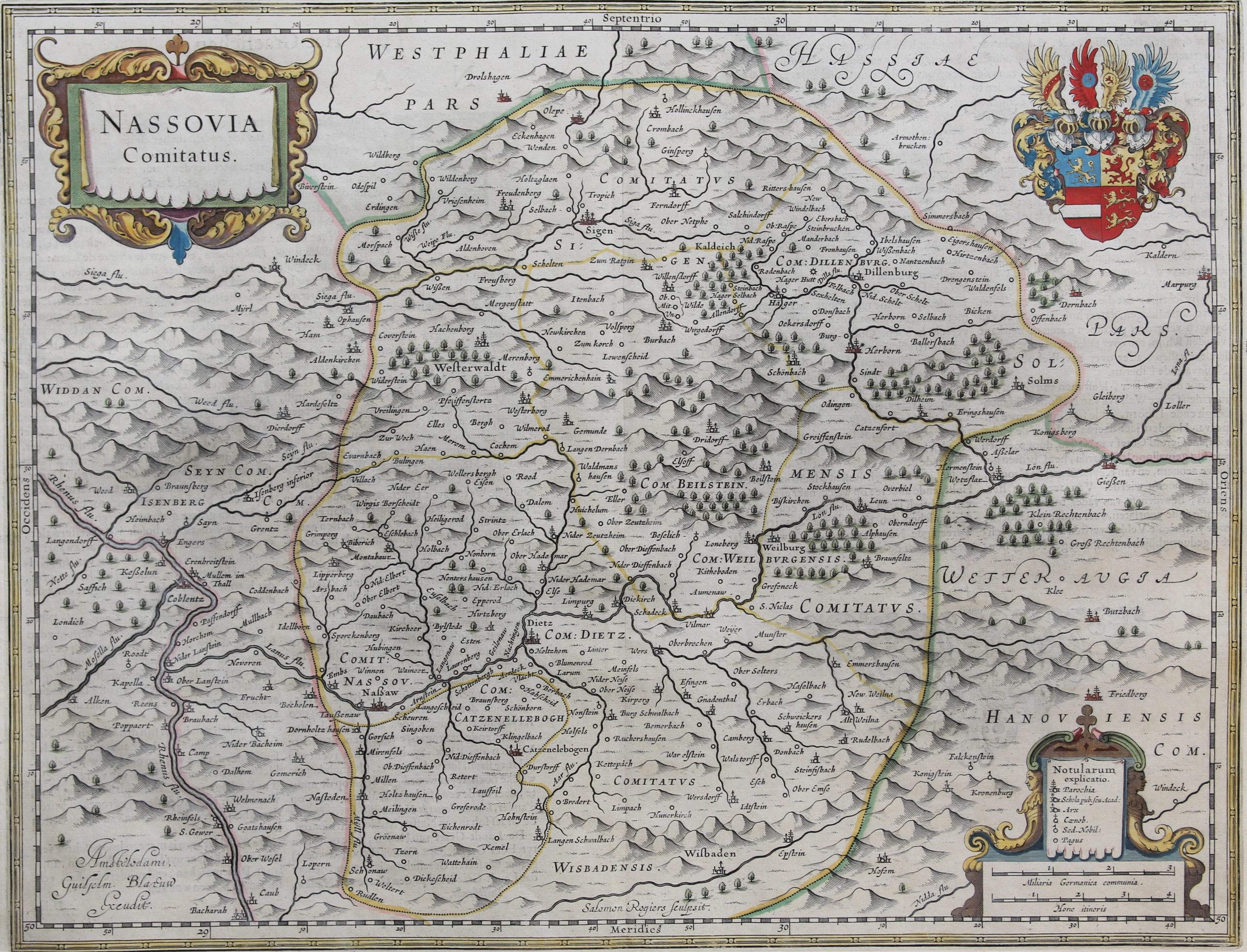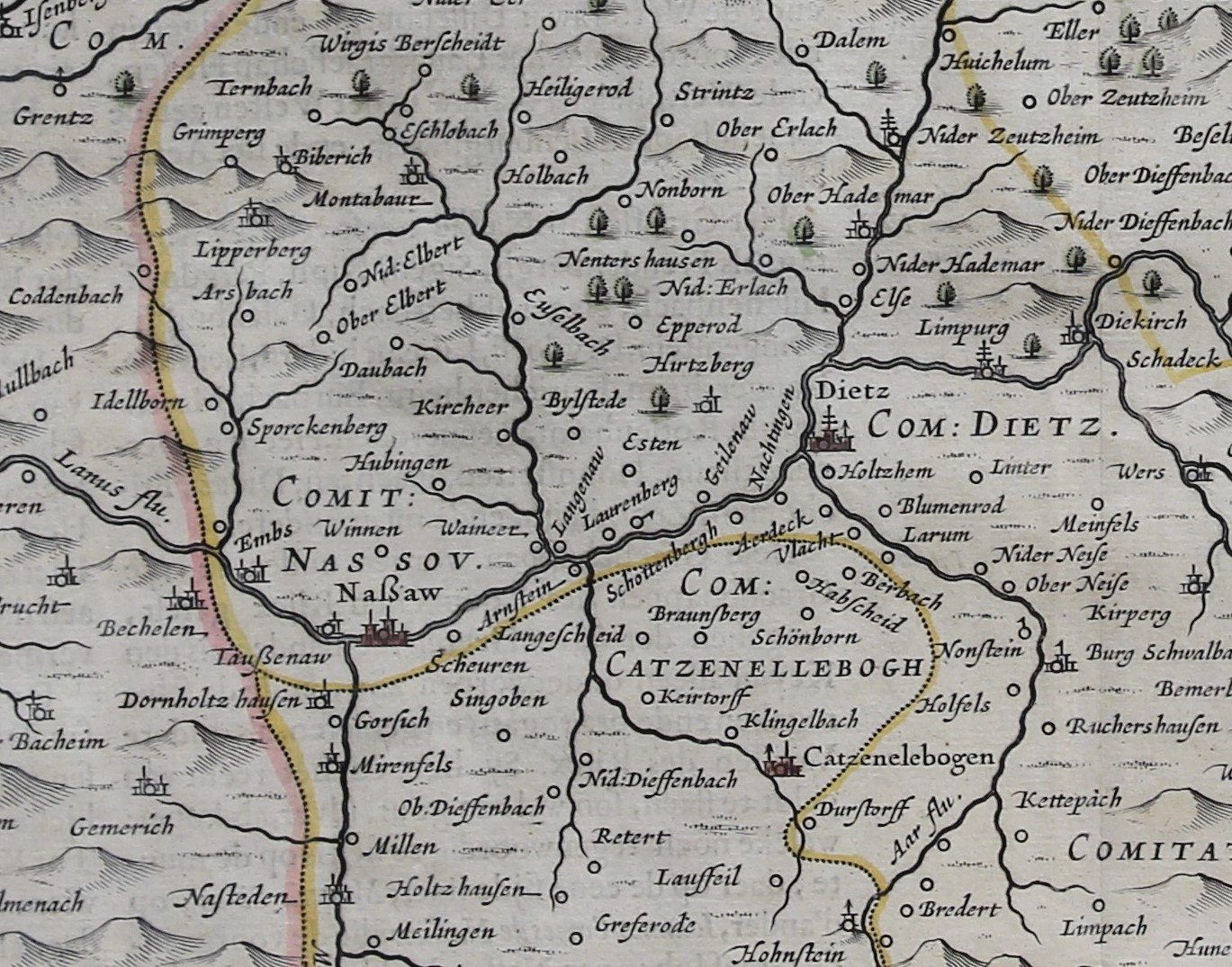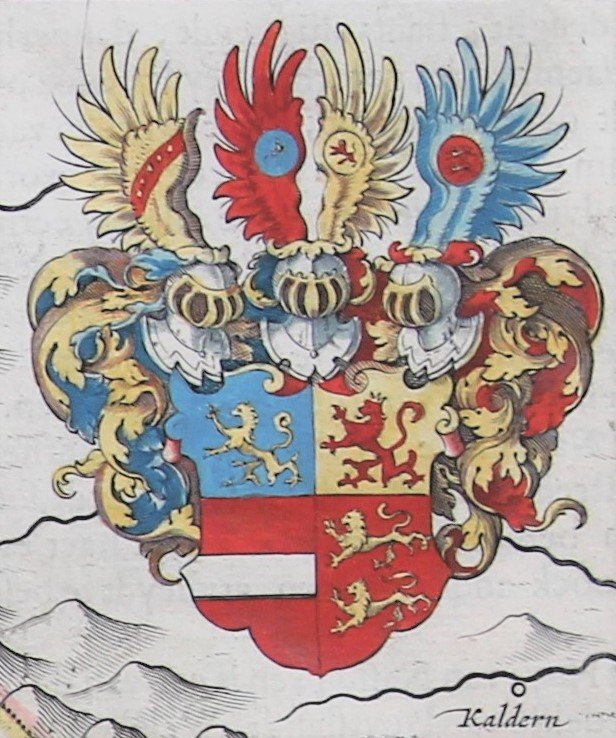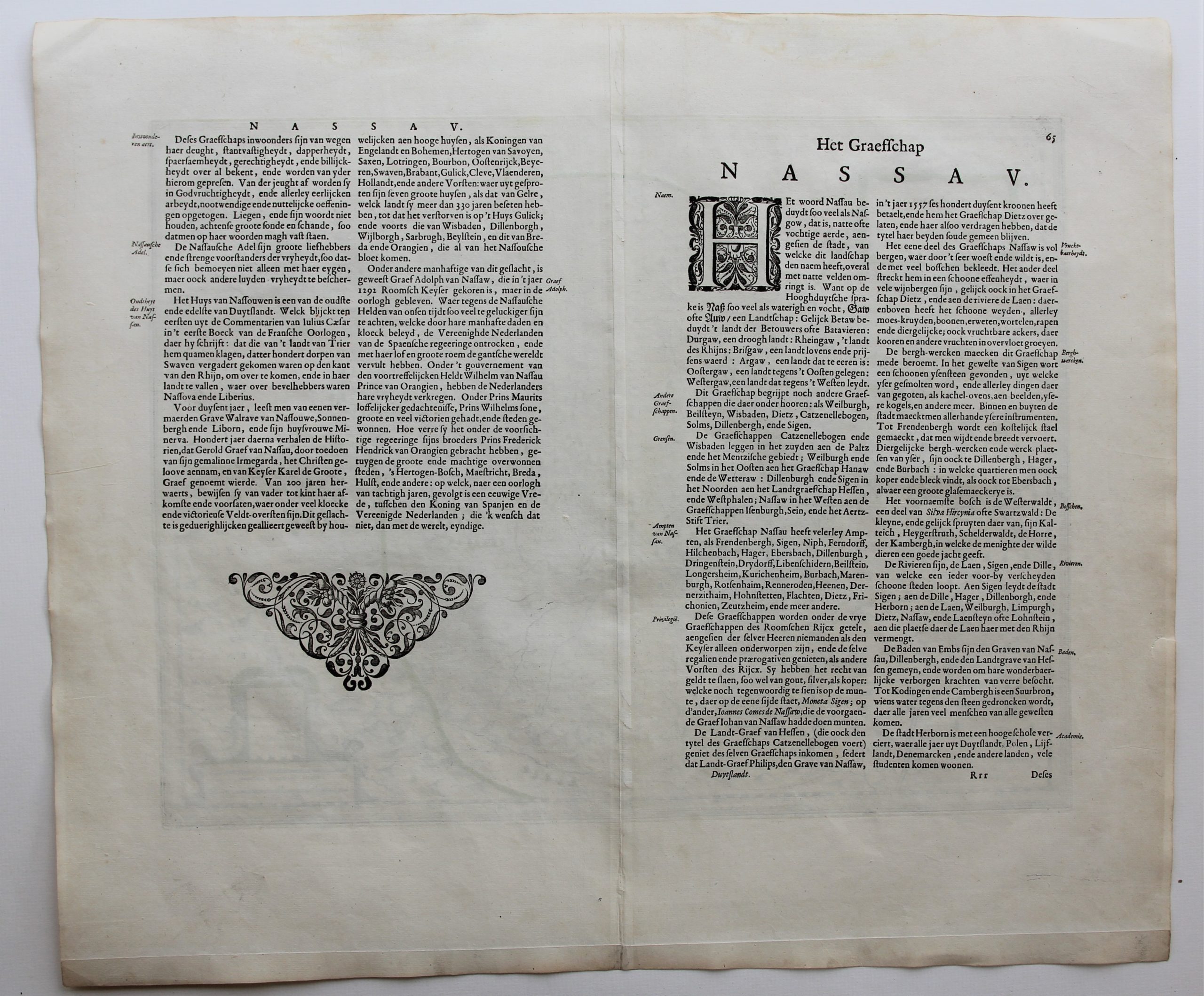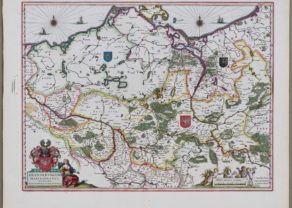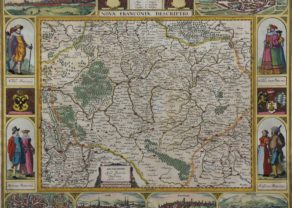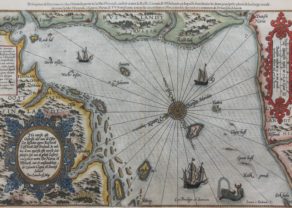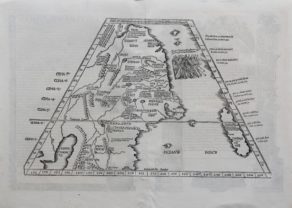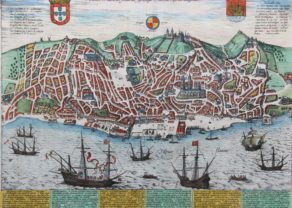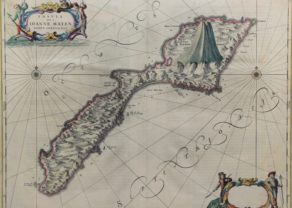Nassau (Germany) – Nassovia Comitatus
Detail
Date of first edition: 1629 (Willem Blaeu)
Date of this edition: 1647-1650 (Willem and Joan Blaeu)
Dimensions (not including margins): 38 x 49 cm
Dimensions (including margins): 52 x 60,5 cm
Condition: Very good. Sharp copper engraving printed on paper. Old outline coloured. Very wide margins. Centre fold as published. Horizontal fold in bottom margin.
Condition rating: A+
Verso: text in Dutch
Map reference: Van der Krogt II, 2390:2.2
From: Tonneel des Aerdrycx, ofte nieuwe Atlas, 1664-1665, Joan Blaeu. van der Krogt II, 222.
In stock
County of Nassau commented by Braun (on verso):
Alexandria is rectangular in shape and has four gates. The first leads toward the Nile, the next to the south toward the lake, the third to the west toward the desert, the fourth toward the Mediterranean; where the harbour is located. Toll keepers and common servants search travellers there down to their skin since duty must be paid not only on their wares but also on every last cent they carry.”
TRANSLATION OF CARTOUCHE TEXT: Alexandria , ancient Egyptian centre of trade, a huge town, founded by Alexander the Great; it was built in 320 BC with walls, towers and fortifications; once magnificent and even today well fortified, but inside its walls full of ruins and rubble, it is comparable in size to Paris.
Taschen:
Alexandria is depicted as a sprawling, formidably fortified town, crisscrossed by multiple arms of the river and where few buildings, but many ruins, stand. Alexandria was founded by Alexander the Great on the Nile Delta and, under the Ptolemaic Empire, was extended to become the capital of Egypt. In the 16th century Alexandria was still used as a commercial port, but it lost its political and economic importance after its capture by the Arabs in AD 642. During its heyday the city was renowned in particular for both its culture and science: the library of Alexandria was the largest in the ancient world, and was affiliated with the Musaeum, a celebrated school of philology. The lighthouse at Alexandria, the Pharos, one of the Seven Wonders of the Ancient World, is also identifiable on a peninsula to the left. Today, with 3.87 milion residents, Alexandria is once again a major international commercial port due to its location on the Suez Canal.
Related items
-

Brandenburg, Pommern, Mecklenburg
by Willem and Joan BlaeuPrice (without VAT, possibly to be added): €350,00 / $388,50 / £311,50 -

Franconia (Franken) – Nova Franconiae Descriptio
by Johannes JanssoniusPrice (without VAT, possibly to be added): €3 000,00 / $3 330,00 / £2 670,00Superb and rare carte-à-figures
